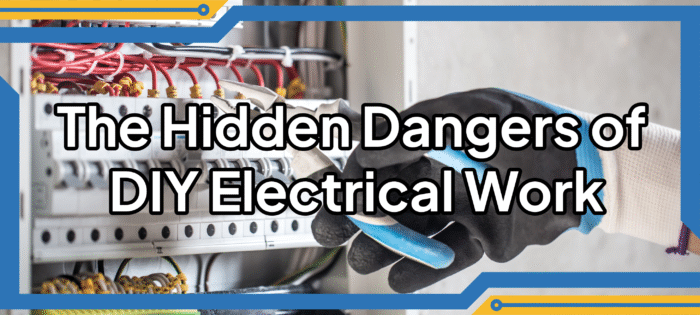Electrical Safety Tips Every Homeowner Should Know are essential for protecting your family, your property, and your peace of mind. From everyday appliance use to hidden wiring risks behind your walls, electrical systems play a role in nearly every part of modern living. Understanding how electricity works in your home — and how to use […]
Commercial Electrical Code Compliance in Southern CA
Commercial electrical code compliance in Southern California is a critical responsibility for every business owner, property manager, and commercial developer operating in the region. From tenant improvements and equipment upgrades to new construction and electrical retrofits, strict state and local regulations govern how electrical systems must be designed, installed, and maintained. Understanding these requirements helps […]
Ceiling Fan vs. Whole-House Fan | Cooling Solutions
Ceiling fan vs whole house fan is one of the most common comparisons homeowners make when searching for energy-efficient cooling solutions. Both systems provide comfort, improve airflow, and can dramatically reduce reliance on traditional air conditioning. By understanding the differences between these two options, you can create a cooling strategy that saves energy, lowers utility […]
Home Battery Storage | Pairing with Solar for Energy Independence
Home battery storage is becoming an essential part of modern living. As we face rising energy demands, combining battery storage with solar systems offers a path to energy independence. Homeowners can reduce their reliance on the grid and embrace residential sustainable practices. In this article, we’ll explore how these systems work together and the benefits […]
The Hidden Dangers of DIY Electrical Work
The Dangers of DIY Electrical Work and Why to Hire a Licensed Electrician is something every homeowner should understand before attempting their own repairs. Electrical systems are intricate, and even minor mistakes can lead to major safety hazards, property damage, or costly code violations. This article explores the risks, safety considerations, and key reasons why […]
Title 24 Lighting Requirements in California
Understanding Title 24 Lighting Requirements in California is essential for homeowners, contractors, and business owners who want to stay compliant with state energy codes while creating efficient, sustainable spaces. These standards affect both residential and commercial properties, shaping how lighting is installed, controlled, and maintained across California. By learning the basics, you’ll not only reduce […]
Industrial LED Lighting Retrofit in Southern California
Industrial LED retrofit is transforming Southern California’s industrial spaces. As companies aim for better efficiency and sustainability, upgrading to LED lighting offers numerous benefits. By reducing energy consumption, improving safety, and ensuring regulatory compliance, businesses can enjoy significant cost savings and become more eco-friendly. This article delves into the benefits, challenges, and best practices of […]
Led Warehouse Lighting in Southern California
Upgrading to LED warehouse lighting in Southern California can transform your workspace with greater safety and efficiency. These lights save energy while improving brightness, providing better visibility for tasks and increasing overall productivity. In this guide, we explore key factors to consider for the best results, helping you choose the right LED lighting for your […]
Finding the Right Electrician When Building Your ADU
Building an ADU, or Accessory Dwelling Unit, involves many decisions, and finding the right electrician is crucial. The right professional ensures your project meets safety standards and complies with local codes. In this article, we’ll guide you through how to choose the best electrician for your ADU project, covering essential topics like licensing, experience, and […]









